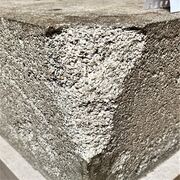Difference between revisions of "Sphinxstone"
Jump to navigation
Jump to search
| Line 5: | Line 5: | ||
==Resources and Citations== | ==Resources and Citations== | ||
| − | * Scott Lynn Paden, [http://www.citadeldca.com Citadel | + | * Scott Lynn Paden, [http://www.citadeldca.com Citadel DCA] contributed information, June 2022. |
* Richard Pieper, 'The Maintenance, Repair and Replacement of Historic Cast Stone' NPS, Technical Briefs #42 [https://www.nps.gov/tps/how-to-preserve/briefs/42-cast-stone.htm Link] | * Richard Pieper, 'The Maintenance, Repair and Replacement of Historic Cast Stone' NPS, Technical Briefs #42 [https://www.nps.gov/tps/how-to-preserve/briefs/42-cast-stone.htm Link] | ||
[[Category:Materials database]] | [[Category:Materials database]] | ||
Revision as of 14:19, 5 June 2022
Description
[Sphinx Acoustical Company] An acoustic Cast stone produced by the Sphinx Acoustical Company. In 1934, Sphinxstone was used in the construction of the Mellon Auditorium in Washington DC. During restoration of the building, visual inspection of the stone indicates that mollusk shell, and white Portlands were used in the concrete mixture. Other fillers and binders are unknown.
Resources and Citations
- Scott Lynn Paden, Citadel DCA contributed information, June 2022.
- Richard Pieper, 'The Maintenance, Repair and Replacement of Historic Cast Stone' NPS, Technical Briefs #42 Link

